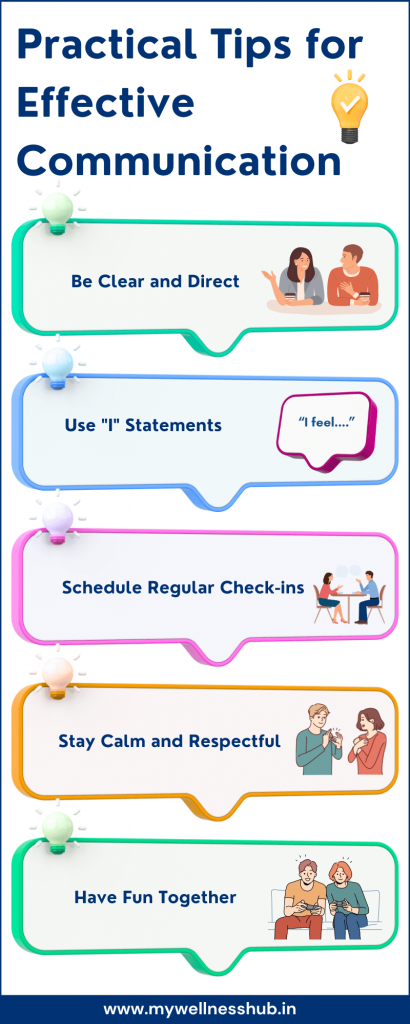

Essential Newlywed Advice: Navigating the First Year of Marriage and Adjusting to Shared Life
Estimated reading time: 12 minutes
The first year of marriage is an exciting journey filled with new experiences and opportunities for growth. However, it can also be overwhelming as couples adjust to shared life, roles, and responsibilities. This blog post highlights essential newlywed advice to help you navigate the challenges of your first year of marriage while setting a strong foundation for your future together.
What is Newlywed Advice?
Newlywed advice refers to practical guidance aimed at couples who are entering their first year of marriage. This period is characterized by significant adjustments, as partners transition from engagement or long-term dating into married life. Newlywed advice helps couples tackle the dynamics of sharing a home, managing expectations, and growing as a team. It's not just about surviving the first year; it’s about thriving during this transformative time. Focus on the Family and Brides.com emphasize the importance of understanding these adaptations to ensure a happy start to married life. For more detailed advice, visit Dreamwedds.
The Importance of Adjusting to Shared Life
The first year of marriage sets the tone for your entire relationship. You'll both discover how vital communication, compromise, and mutual support are during this time of adjustment. You're not just merging your lives; you're also learning to navigate each other's needs and desires.
“Marriage doesn’t get easier, but you’ll get better at it—together.”
This encapsulates the essence of adapting and growing together during the first year. Focus on the Family. For a comprehensive guide to a happy married life, visit Dreamwedds.
Understanding the First Year of Marriage
Common Challenges Newlyweds Face
Your initial year as newlyweds is often one of the most challenging times. Here’s what many couples find difficult:
- Blending Routines and Lifestyles: Adjusting to each other’s daily habits can be tricky. You might find that your routines are very different!
- Managing Expectations: Balancing expectations between each other and your families can lead to tensions if not properly communicated.
- Handling Family Pressures: Learning how to navigate new in-laws and family dynamics can add pressure to your relationship.
- Adjusting to Living Together: If you didn't cohabit before marriage, getting used to each other's habits can be a big adjustment.
- Dealing with Disappointment and Miscommunication: Sometimes, things don’t go as planned, leading to feelings of disappointment or disconnect.
Recognizing these challenges is the first step toward addressing them. For more insights, check out Focus on the Family and Fun and Holy. Additionally, being aware of relationship red flags can help you navigate potential issues.
Emotional and Psychological Adjustments Required
Merging two lives means combining your emotional well-being too. During the first year, you should focus on:
- Sharing Vulnerabilities: It's essential to build emotional intimacy by sharing both your fears and dreams.
- Conflict Resolution Skills: Learn to handle disagreements constructively. Not all conflicts need to end in a fight!
- New Identities: Embrace your new identity as a married couple. This includes understanding that you may need to let go of some independence.
- Shifting Priorities: Aligning on shared goals can help redefine your individual paths together.
Feeling both excited and anxious is completely normal; that’s just part of the marriage adjustment process! Take the time to cultivate this emotional understanding. More tips can be found at Focus on the Family and Fun and Holy. Additionally, here are some strategies for building emotional intimacy in your relationship.
Practical Newlywed Advice
Effective Communication Strategies
Effective communication is the cornerstone of any successful relationship. Here are some useful strategies:
- Make Open and Honest Communication a Daily Habit: Talk about your joys and frustrations regularly. This openness fosters trust and understanding. Happily Ever After. For more on this topic, see Essential Talks Before Marriage.
- Discuss Expectations and Boundaries Early and Often: Set clear guidelines for shared responsibilities, such as household chores and finances. Being upfront can prevent misunderstandings later.
Managing Finances Together
Finances can be a major stressor in marriage. Here’s how to handle them together:
- Create a Detailed Monthly Budget and Stick to It: Take stock of your income and expenses as a couple. Transparency is key to avoiding financial stress. Learn more about financial compatibility.
- Consider Joint and Separate Accounts: While joint accounts can help with shared expenses, having separate accounts allows for personal spending without guilt. Create a system that works for both of you!
- Schedule Regular Money Check-Ins: Monthly discussions about finances can help ensure both partners feel secure and involved. More budgeting tips can be found at Happily Ever After. Further reading: Financial Compatibility.
Decision-Making Roles in a Partnership
Understanding how to make decisions together is crucial:
- Split Responsibilities: Assign tasks based on each partner’s strengths and preferences. Don’t default to traditional gender roles; keeping it balanced helps maintain fairness.
- Revisit and Adjust Roles Regularly: It's essential to check in and adapt as your lives evolve. This flexibility keeps both partners engaged and satisfied.
Building a Strong Relationship Foundation
Emphasize the Significance of Teamwork
Remember, marriage is a partnership where teamwork is vital. Here’s how to build that foundation:
- Treat Marriage as a Partnership: Approach challenges together. Use “we” instead of “I” to strengthen that team mentality. Happily Ever After. For more insights, see our career and marriage balance tips.
- Work Through Conflicts Together: Focus on finding solutions rather than placing blame. Effective teamwork fosters unity.
Strategies for Maintaining Intimacy and Romance
Don’t forget to keep the spark alive:
- Plan Regular Date Nights: Revisit old favorites or explore new activities. Setting aside time for one another helps keep your connection strong. TIME. For tips on keeping the spark alive, read How to Keep the Relationship Spark Alive After Marriage.
- Express Affection through Small Gestures: Simple acts, such as notes, hugs, or compliments, can strengthen your bond greatly.
- Prioritize Open Discussions about Intimacy: Talk about each other's needs and desires openly. Adjust to changes as time goes on, and recognize that intimacy can evolve.
Adjusting to Shared Responsibilities
Household Chores and Routines
Establishing a comfortable living space is essential. Here's how to do it:
- Create Systems for Dividing Tasks: Whether through a chore chart or schedule, ensure that both partners know their responsibilities.
- Be Flexible and Willing to Renegotiate: Life changes, and your household responsibilities may need to adapt over time. Keep the lines of communication open!
Supporting Each Other’s Personal Growth
While growing together, remember to allow space for individuality:
- Encourage Individual Interests: Supporting your partner’s hobbies or career goals enriches your relationship. Celebrate their achievements as if they were your own.
- Balance Individual Pursuits with Shared Activities: It's vital to carve out time for both personal passions and togetherness. This balance can foster a deeper connection.
More on this can be found at Focus on the Family. Additionally, read about Embracing Individuality in Marriage.
Seeking Help When Needed
Don’t hesitate to seek guidance if challenges persist:
- Consider Marriage Counseling: This isn’t a sign of weakness; it’s a proactive choice towards a healthier relationship. Professional support can be invaluable during tough transitions. Brides.com. Learn more about the benefits of premarital counseling.
- Normalize Seeking Help: Many couples find that external perspectives can provide clarity and solutions. Reaching out is a sign of commitment to your marriage.
Conclusion
Remember, your first year of marriage is a dynamic learning experience filled with both joy and challenges. By focusing on crucial aspects like effective communication, managing finances, sharing responsibilities, maintaining intimacy, and seeking help when needed, you can navigate this year with confidence.
The key is patience—both with yourself and your partner—as you adjust to your new lives together. Every marriage is unique, and sharing your tips or experiences can further enrich this journey for others.
What strategies have worked for you during your first year of marriage? We’d love to hear your stories in the comments below!
While the journey may not always be easy, facing challenges together strengthens your bond and lays a sturdy foundation for a lasting partnership. With the right mindset and these essential newlywed advice tips, you’re on your way to not just surviving, but thriving in marriage.
Previous Blog Posts:
- Why should we have own personalized Wedding Website
- Why Indian Weddings are so Special
- How Engagement Party should be celebrated
- From Destiny to Devotion: Understanding the Significance of Made in Heaven Marriages
- What to wear in Indian Weddings
- Elevate Your Haldi and Mehandi Ceremony Glam
- Guide to a Happy Married Life for Newly Married Couples
- Health and Wellness for Brides and Grooms
- A Guide to Health, Wellness post Marriage
- Canvas of Love: A Tale of Dreams and Distance Episode 1
- Arranged or Love Marriage: A Comprehensive Guide to Pros, Cons, and Key Differences
- Essential Premarital Discussion Topics for Building a Strong and Lasting Marriage
- Financial Compatibility: What It Is and How to Strengthen It in Your Relationship
- Living Together Before Marriage: The Complete Guide to Pros, Cons, and Expert Tips
- Recognizing Relationship Red Flags: How to Identify Toxic Traits and Warning Signs
- Building Emotional Intimacy: Pre-Marriage Bonding Strategies for Developing a Deeper Relationship Connection
- How Family Influence Shapes Pre-Marriage Relationships: Navigating Family Roles Before Marriage
- Long-Distance Relationship Tips: How to Maintain Love and Connection Before Marriage
- Marriage Readiness: The Ultimate Guide to Checklists and Questions for a Lifelong Commitment
- Setting Healthy Relationship Expectations Before Marriage: A Guide to Building Stronger Partnerships
- Interfaith Marriage: Navigating Cultural Differences and Religion for a Lasting Relationship
- The Benefits of Premarital Counseling: Building a Strong Foundation for Marriage
- Embracing Individuality in Marriage: Strengthening Your Relationship Through Personal Growth and Balance
- Career and Marriage: Tips for Achieving Balance and Thriving Together
- Essential Talks Before Marriage: Key Conversations to Build a Strong Relationship Foundation
- Overcoming Wedding Anxiety: Coping with Pre-Marriage Doubts and Cold Feet
- How to Keep the Relationship Spark Alive After Marriage: Tips for Passion and Excitement
- Practical Newlywed Advice: Navigating Your First Year of Marriage Successfully
-
 Elevate Your Haldi and Mehandi Ceremony Glam
Elevate Your Haldi and Mehandi Ceremony GlamNeeraj Singh
-

-
 What to include in my Wedding Website
What to include in my Wedding WebsiteDream Wedds
-
 How Engagement Party should be celebrated
How Engagement Party should be celebratedLeonard Bernstein
-

-

-

-

-

-

-

-

-
 Health and Wellness for Brides and Grooms
Health and Wellness for Brides and GroomsDreamWedds
-

-

-

-

-
-
-
-

-

-

-

-

-

-

-

-

-

-
 Personal Space: The Key to a Healthy and Balanced Marriage
Personal Space: The Key to a Healthy and Balanced MarriageDreamWedds Team
-

-

-
 Fade Dark Spots: Natural Remedies and Tips for Clearer Skin
Fade Dark Spots: Natural Remedies and Tips for Clearer SkinDreamWedds Team
-

-

-

-
-

-
-
 Makeup Basics: Essential Cosmetics Every Beginner Should Own
Makeup Basics: Essential Cosmetics Every Beginner Should OwnDreamWedds Team
-

-

-
-

-

-

-
 Selecting the Perfect Foundation Shade: Your Ultimate Guide
Selecting the Perfect Foundation Shade: Your Ultimate GuideDreamWedds Team
-

-

-
 Effective Natural Skincare Remedies to Reduce Pore Size
Effective Natural Skincare Remedies to Reduce Pore SizeDreamWedds Team
-

-

-

-
 The Importance of a Bridal Makeup Trial for Your Wedding Day
The Importance of a Bridal Makeup Trial for Your Wedding DayDreamWedds Team
-
 The Ultimate Guide to Achieving Long-Lasting Bridal Makeup
The Ultimate Guide to Achieving Long-Lasting Bridal MakeupDreamWedds Team
-

-
:max_bytes(150000):strip_icc()/Kitzcornermedium-c9abd848ea634040a06bb6db8b8a7304.jpg)
-

-

-

-

-

-

-
 The Ultimate Wedding Planning Checklist for Indian Weddings
The Ultimate Wedding Planning Checklist for Indian WeddingsSimranpreet Singh
-

-

-

-
 A Guide to Health, Wellness post Marriage
A Guide to Health, Wellness post MarriageSaujanya Bose
-

-

-
 Virat & Anushka: A Fairytale Wedding to Remember!
Virat & Anushka: A Fairytale Wedding to Remember!Yashashvi Mathur
-
 YOUR BIO AND HOW WE MET
YOUR BIO AND HOW WE METLeonard Bernstein
-







